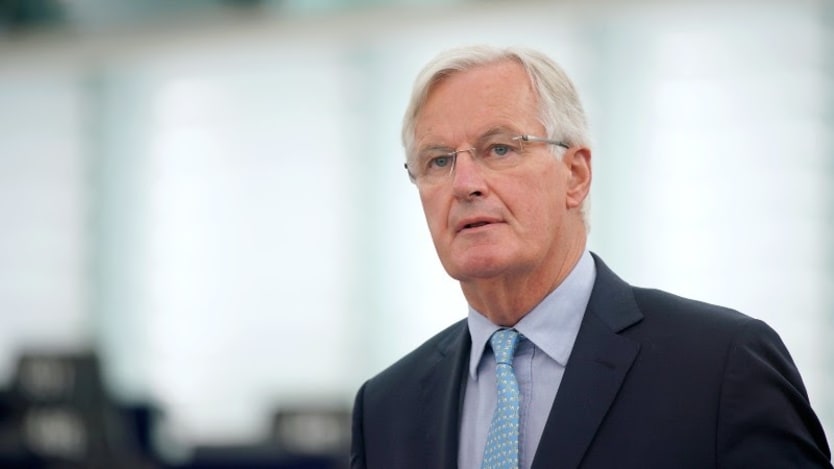
BRUSSELS — The European Union’s Brexit negotiator says the interests of the bloc and the departing U.K. would be best served by an ongoing framework for cooperation on development policy — the opposite of the ad hoc approach now favored by London.
“It seems to me that it is also in the interest of the United Kingdom to have a preventative framework,” Michel Barnier told reporters Friday at a virtual press conference in Brussels after the seventh round of talks on the pair’s future relationship.
Brexit: UK will not seek a formal agreement with EU on development
Omar Daair, head of DFID's Europe department, said the U.K. will no longer put money through EU development channels after Brexit but will continue to cooperate in an "ad hoc" way.
The Frenchman said such an approach would ensure the best cooperation with the U.K. in the area of development, notably in Africa, in political cooperation, at the United Nations, and in sensitive regions such as the Mediterranean.
“These are the areas where I think that our interest would be to have a usable framework, rather than to improvise at the moment of a crisis,” Barnier said.
In April, however, Omar Daair, head of the Europe department at the U.K. Department for International Development, said that it would collaborate with the EU on a “case-by-case” basis.
Mikaela Gavas, co-director for development cooperation in Europe at the Center for Global Development, told Devex by email Friday that this “case-by-case” policy marked a shift from the approach under former Prime Minister Theresa May.
“The EU feels that trust is lacking and that the U.K. has reneged on the political declaration — agreed and signed by the Prime Minister — which set out close cooperation on foreign and development policy,” Gavas wrote.
“I understand that the United Kingdom does not want to talk about this,” Barnier added Friday. “That’s their choice; you need to be two to talk. But this will probably be the subject of a discussion and negotiations after the conclusion of this foundation of the partnership agreement on economic and internal security questions.”
“I think that our interest would be to have a usable framework, rather than to improvise at the moment of a crisis.”
— Michel Barnier, Brexit negotiator, European UnionThe U.K. left the EU on Jan. 31 and is now negotiating an overarching partnership agreement with the bloc as part of a transition period, due to end on Dec. 31.
The future of its partnership with the EU on development cooperation has been a key concern for those in the development community.
A DFID spokesperson wrote to Devex on Friday that: “Leaving the EU does not change the UK’s commitment to supporting the world’s poorest and most vulnerable people. We are already working closely with the EU on a wide range of development issues, including COVID-19 and climate change.
“We will continue to cooperate with the EU on a case-by-case basis where it is in our best interest, as we do with our other development partners.”








